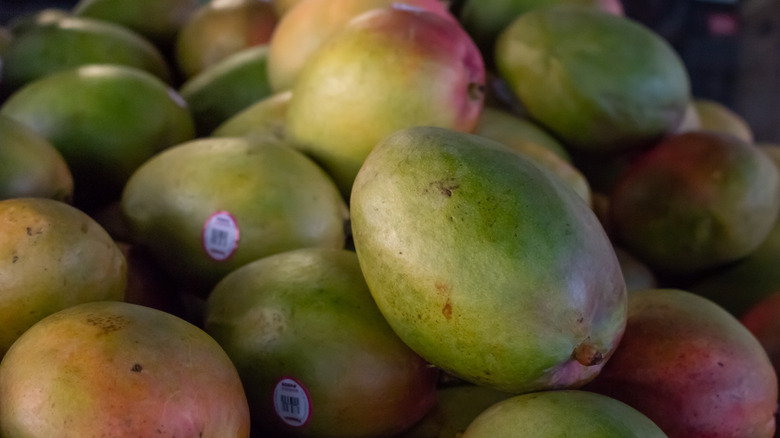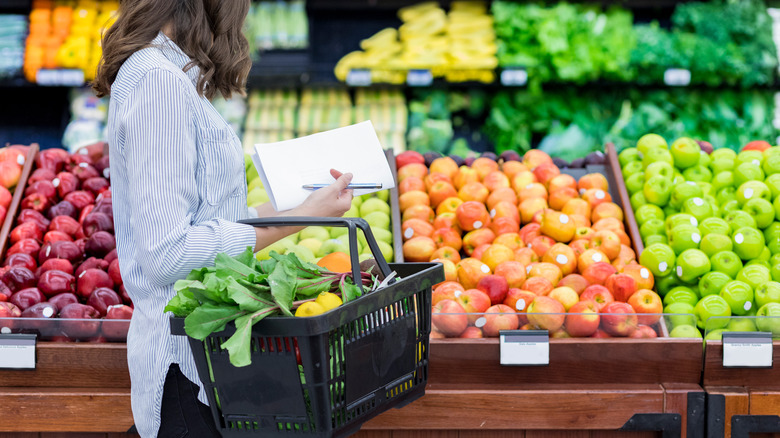Why You Should Check The Origin Location Of Produce At The Store
For most of us trying to get in and out of the grocery store, a stop in the produce section might involve checking a tomato for freshness or an avocado for firmness and maybe smelling a cantaloupe or peach for ripeness. But you may be overlooking one quick, easy, and important step in the produce section to ensure you're getting the best quality, healthiest, most environmentally friendly food possible. And it's all hiding out on those small produce stickers most of us ignore.
Next time you're bagging any fresh produce from the store — lemons, plums, avocados, tomatoes, you name it — take a gander. The small circular or oval produce labels on each piece of fruit or veg don't only tell store cashiers the proper amount to charge you and if the item was conventionally or organically grown. Importantly, they also show the state or region where they were grown, so you can choose produce that's as close to local as possible, which means fresher, more nutrition-dense foods with a reduced carbon footprint. If a produce sticker shows that a fresh peach's place of origin, for example, is your home state versus another country, you can bet it will be riper and tastier.
A reduction in food miles is a win for taste, nutrition, and the planet
Good intentions and goals aside, we don't live in a perfect world and it's not always feasible to only shop at a farmer's market or get fresh goods via a CSA. But by just checking supermarket produce stickers and choosing the closest-to-local option, that apple, cabbage, or tomato will be not only fresher and more delicious but also more nutritiously dense. Produce that's traveled thousands of miles can significantly deteriorate in terms of its nutritional value, as the vitamin and mineral content declines each day that passes once a fruit or veg has been harvested. During the many days food may spend traveling from a field to the store, mild to significant degradation in vitamins such as C and B can occur (via UC Davis). Closer to home is always better.
Environmental considerations are another important reason to shop as locally as possible. The carbon footprint and environmental impact of our food can quickly add up during transportation. Whenever possible, reduce your food miles (the distance food has to travel to reach your plate) by choosing items grown near to home or in neighboring states. With local or closer-to-local purchases, the planet benefits, as do your health and taste buds.

